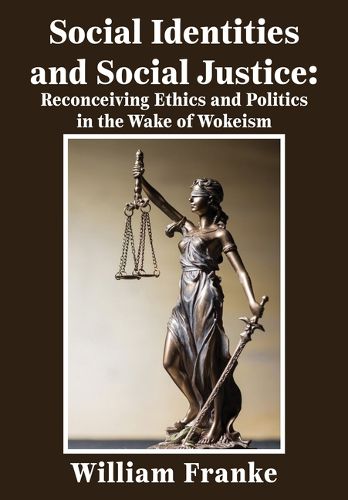Readings Newsletter
Become a Readings Member to make your shopping experience even easier.
Sign in or sign up for free!
You’re not far away from qualifying for FREE standard shipping within Australia
You’ve qualified for FREE standard shipping within Australia
The cart is loading…






The revolutionary upheaval currently sweeping across Western democracies on parade under the banner term "woke" calls for rethinking the foundations of ethics and politics. The social justice movement challenges us to fundamentally reconceive our being with one another in society and to re-embrace our profoundest traditions. Focus on identities, however, has become divisive and vexatious. In Social Identities and Social Justice, William Franke indicates a way to exit from the current impasse empoisoning politics in Western democracies by thinking the concept of identity through to its grounds in the non-identity (or undelimited human potential) that all share and that unites rather than divides us. The traditions of negative theology (admission of ignorance of God) and apophasis (self-critical unsaying of one's own certainties) are leveraged for outlining a truly relational approach to public discourse. We must open our concepts of mutually exclusive identities towards their infinite truth rooted in our unlimited interconnectedness. Doing so, we open our ideas beyond their finite content and open ourselves to building a world together.
$9.00 standard shipping within Australia
FREE standard shipping within Australia for orders over $100.00
Express & International shipping calculated at checkout
The revolutionary upheaval currently sweeping across Western democracies on parade under the banner term "woke" calls for rethinking the foundations of ethics and politics. The social justice movement challenges us to fundamentally reconceive our being with one another in society and to re-embrace our profoundest traditions. Focus on identities, however, has become divisive and vexatious. In Social Identities and Social Justice, William Franke indicates a way to exit from the current impasse empoisoning politics in Western democracies by thinking the concept of identity through to its grounds in the non-identity (or undelimited human potential) that all share and that unites rather than divides us. The traditions of negative theology (admission of ignorance of God) and apophasis (self-critical unsaying of one's own certainties) are leveraged for outlining a truly relational approach to public discourse. We must open our concepts of mutually exclusive identities towards their infinite truth rooted in our unlimited interconnectedness. Doing so, we open our ideas beyond their finite content and open ourselves to building a world together.